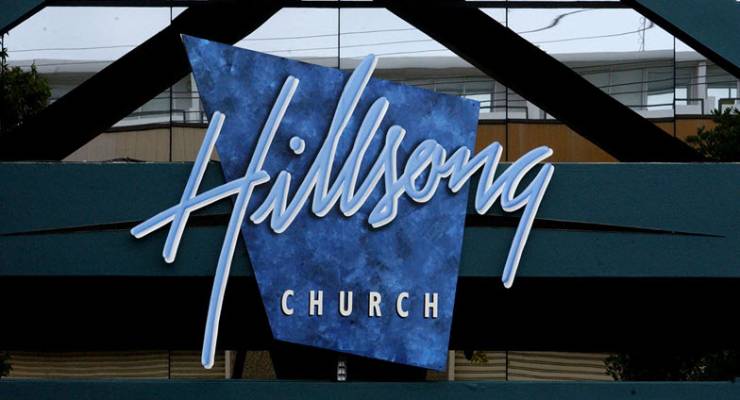
The story became famous a while back, when Bob Katter founded his tinpot Katter’s Australia Party. Bob’s first political act, they said, was in 1964, when he and a bunch of Country Party young bloods had protested the arrival of the Beatles. Ha, crazy old/young Bob, they all said, denouncing the decadence of pop. But Bob et al had their reasons: the frenzy surrounding the Fab Four had drawn crowds exceeding those of the previous drawcard, the reverend Billy Graham, “America’s Pastor”.
Graham, who has died aged 99, had toured Australia in 1959 on one of his 200 “crusades” (after 9/11 he changed the title to “mission”) that had started in 1954. He was a devilishly handsome preacher, a dead spit of Jerry Lee Lewis, the besuited rocker. He emerged into a postwar Western world that was heading into the great era of consumerism, and leaving the solidarity and noble purpose of World War II behind. His manner and message — of a return to Jesus’ word in the Gospels — caught like wildfire and roared around the world.
In 1959, the Graham crusade hit Australia. And stayed. The extravaganza, with white-gowned choirs of hundreds, attracted crowds of more than 150,000 in Melbourne and Sydney. By the end, possibly a quarter of the Australian adult population had seen Graham live. The crusade started a wave of evangelical Christianity within sections of the Australian Baptist and Anglican churches. This was centred on Sydney, where Graham had his base. Sydney Anglican archbishop Peter Jensen was a Graham convert, and decades of power struggles within the Australian church can be traced back to the Billy Graham moment.
And not just in the church. Graham established his base, for a time, on the outskirts of Sydney, near Seven Hills. The area, outside Parramatta, was still market gardens and orchards, with the first suburban subdivisions being laid out. People moved out to be near Graham, some of them staying in tents. When he moved on, many stayed. They built houses, turned what had been a Baptist area into an evangelical community. One striking example of their legacy is the Hillsong church, based to the north, on Castle Hill. Hillsong has now become a global outfit, in the “Grahamist” tradition — strong on aspects of the Gospel word, attentive to its tax deductible status, less insistent on Old Testament literalness.
Through counselling — on marriage, finances, child-raising etc — it directly influences and shapes the views of hundreds of thousands of Australians, with a mid-level message. Thus Hillsong counselling will not say that the husband should be the head of a marriage, but it will say that a marriage needs “leadership”, and y’know, hands up which. The entire surrounding area is saturated with Christianity: many of the suburban development firms there are explicitly Christian in origin. The huge development of “The Ponds” to the west – a vast space of fence-to-fence McMansions, around a lake and schmick community centre, the area devoid of shops, cafes and bars – for years had its “community life organisation” subcontracted to an evangelical Christian social management firm, which arranged meetups, events, charity days and so on.
That web of believers has in turn had a political effect. The first generation stayed out of politics; their children entered the Liberal party en masse, and started a long march through the institutions. Alex Hawke, their de facto leader, member of Mitchell, which covers the region, was born there, attended Hills Grammar, and is a member of the Hillsong congregation. A long arc of the NSW Christian Right stretches from here, up towards Tamworth, and back down to Canberra (where fellow clappie Zed Seselja gained Liberal Senate preselection, and election, in the ACT).
For a time, the Christian right were far stronger in NSW than in Victoria. Lately, as liberal-conservatism collapses as a compelling ideology, the clappies are gaining in the party of Menzies and Hamer. Michael O’Brien, who will take over the party if they fail at the next election, and perhaps before, is a strong Christian (Matthew Guy? He sups with a long spoon). But the clappies of Sodom-on-Yarra will never compete with those who heard the word in the parched hills outside Sydney.
That is not simply figurative. Social movements, whole societies, always begin from small groups. Cults become cultures. The direct word, handed down one to another, is an immensely powerful tool, and a hundred people of commitment and shared passion can determine the direction of a whole society. As Bill Graham did. Bob Katter was right in his political instincts: the Beatles one day, Dunstan and Whitlam the next. The Grahamites’ moment had to wait a while while the ’60s happened; then it came roaring back. For he planteth his crops in good soil, old Billy, and lo the flowers and fruits are everywhere.








Believing that his hate for queers
Proclaimed his love for God
He now (of all queer things, my dears)
Lies under his first sod
Paul Dehn
Hillsong have moved into a nice venue in Newcastle’s CBD. However, they have to cart in their followers from the regional and traditionally more poverty stricken margins of Toronto and Cessnock.
They can afford to ‘cart in’ all of their suckers. And still they pay no tax.
yep but they still have a Castle Hill centre
Good riddance to the old goat, just a pity he lasted so long to be able to spread his crap far and wide.
HEAR HEAR! 🙂
Billy and his Australian fellow travellers…a pack of drongos the lot of them!
Time to level some taxation on these and other fantasy story-tellers!!
Zed’s dead baby, Zed’s dead.